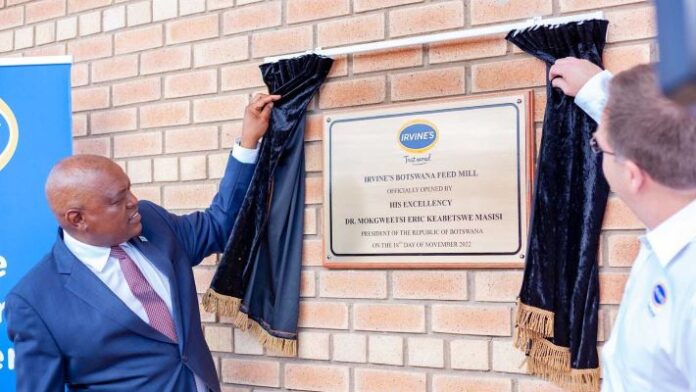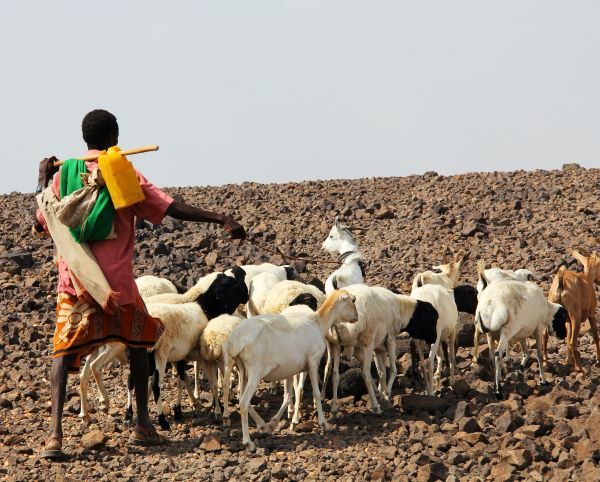Zimbabwe’s largest day-old chicks and egg producer, Irvine’s, has opened a new feed mill in Mmamashia, Gaborone, Botswana.
Irvine’s new investment into that market, which it entered about 20 years ago, underscores the firm’s regional growth ambition.
The facility was officially opened by Botswana President Mokgweetsi Masisi in Gaborone, according to Irvine’s chief executive Craig Irvine.
President Masisi said Irvine’s success was underpinned by ensuring that it feeds its network of clients with high quality products manufactured at international standards.
“All our investments are done to the highest international standards to ensure good levels of bio-security and the latest international standards in manufacturing practices, which enables us to provide all our customers with the quality products they expect from us,” Irvine said.
Irvine’s Botswana business started operations in 2002 with a hatchery producing Cobb day-old chicks for that market.
This was the same period when Zimbabwean firms were making aggressive moves into foreign markets to save their operations from a vexing economic crisis domestically.
The firm produces 18 million day-old chicks in the Botswana market.
He said Irvine’s feedstock operation manufactures 48 000 tonnes of feed per year in Botswana.
In Zimbabwe, Irvine’s has no feedstock processing facility.
The firm relies on chicken feed produced by units of the Zimbabwe Stock Exchange-listed blue chip, Innscor Africa Limited, for feed, according to Irvine’s.
He said the firm supplied over 60 000 farmers across Botswana, Zimbabwe, Mozambique and Tanzania with locally-produced chicks in each of these countries.
According to Irvine’s, the firm’s focus is on building a one-stop shop operation with capacity to provide day-old chicks, feed, vaccines, equipment and other inputs across its regional markets.
President Masisi called on local maize farmers and other investors to participate in the value chain system created by Irvine’s, saying the company sources a significant portion of its maize requirements from local farmers and that the feed mill is expected to double its production.
He said Botswana’s increased food demand and ever-changing consumption habits have contributed to the country’s rising food import bill but present opportunities to exploit value chains in the agriculture sector.
“Such areas of focus include production of day-old chicks, feeds, poultry-related veterinarian products and diversified processed poultry products at competitive prices,” he said, adding that the sector has enormous potential to catalyse economic growth in the aftermath of the Covid-19 pandemic.
More than 60 percent of this production goes into the small scale farming sector across Botswana, the balance to the commercial sector.
“Most people do not understand the size and importance of the small scale sector which, outside of South Africa, produces more than 80 percent of the chicken consumed in Sub-Saharan Africa,” Irvine pointed out.
“Irvine’s is proud to supply over 60 000 farmers across Botswana, Zimbabwe, Mozambique and Tanzania with locally produced chicks and feed in each of these countries.”
He noted that the company’s operations in Botswana have had a knock-on effect on the supply chain by procuring 26 000 tonnes of maize a year from the Botswana Agricultural Marketing Board (BAMB) and local maize farmers.









